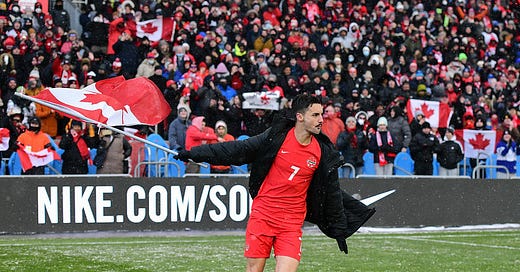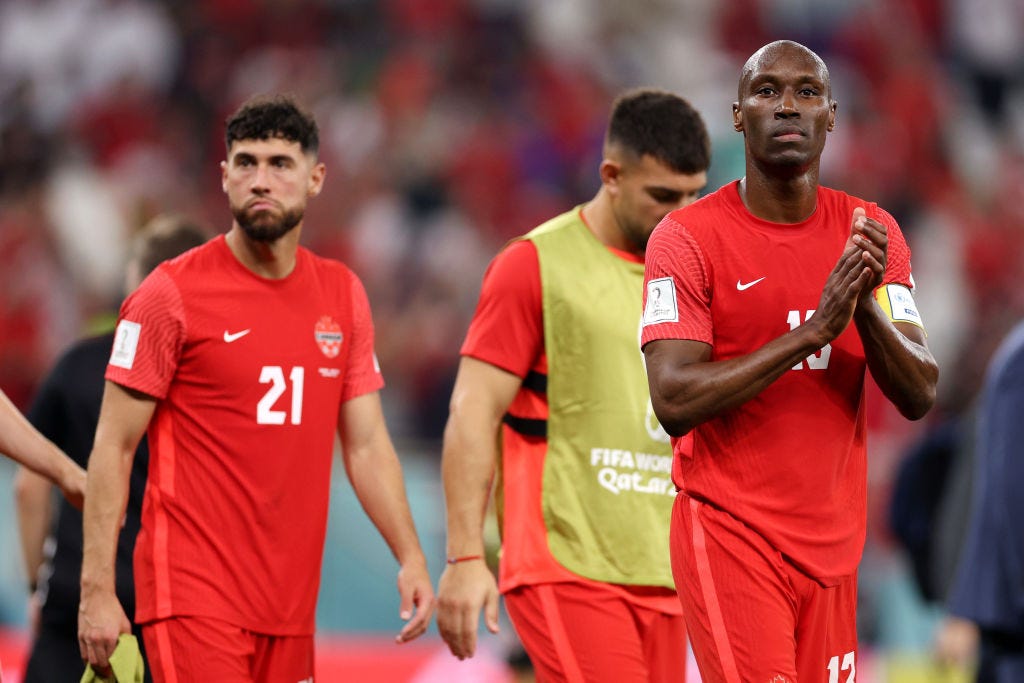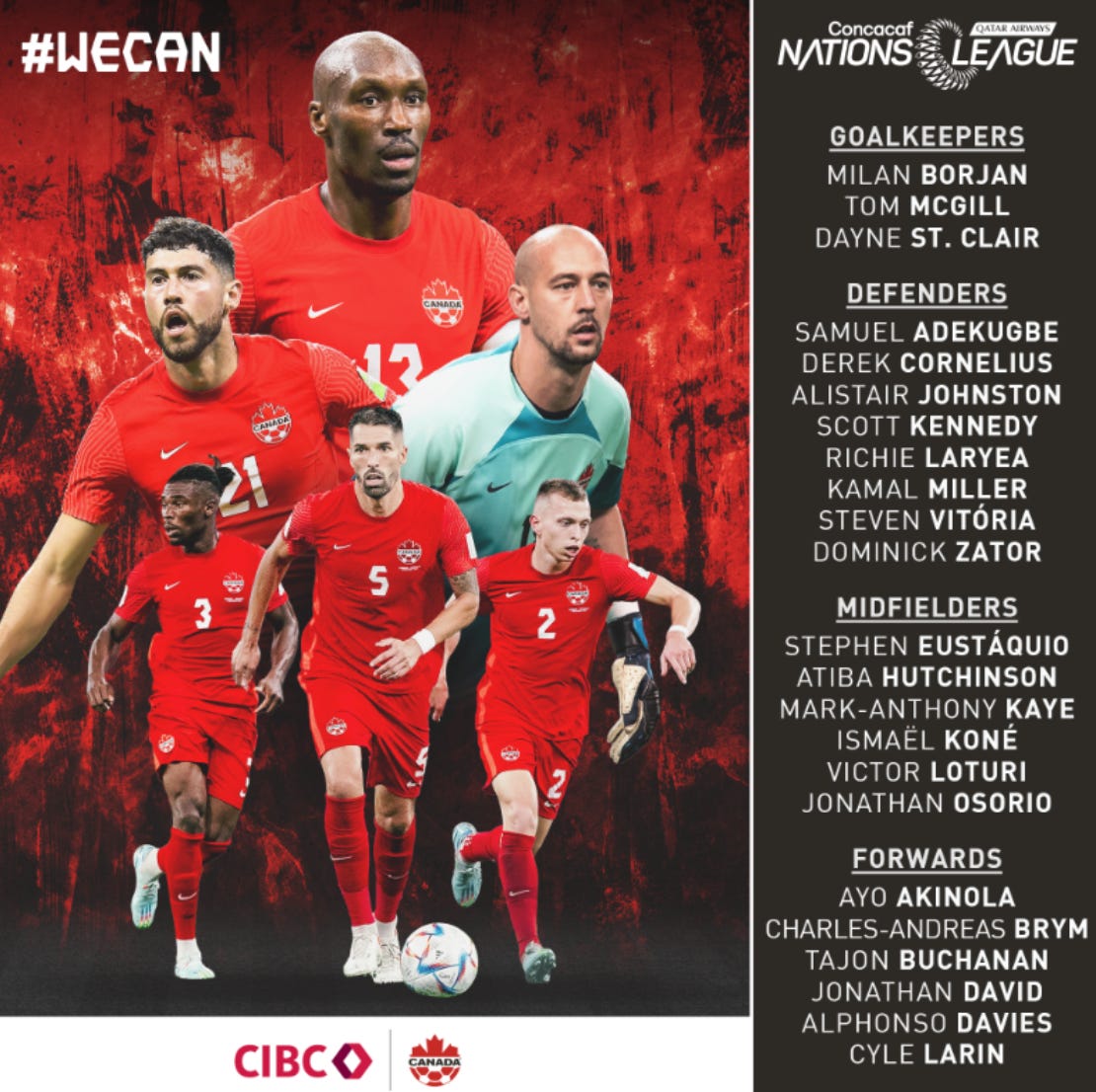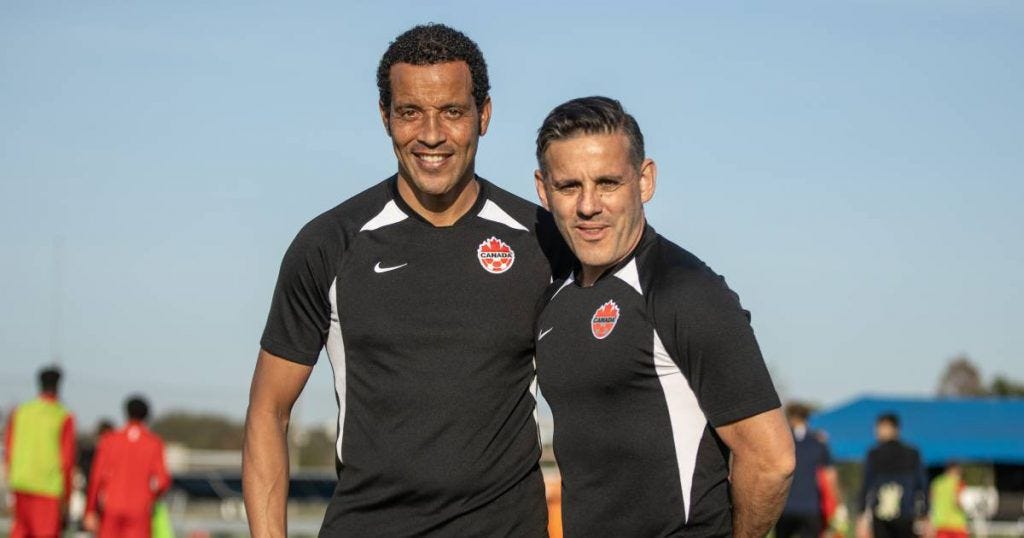Canada did it.
The men’s national team achieved its goal of topping the World Cup qualification standings in Concacaf and returning to the World Cup for the first time since 1986.
That World Cup didn’t go all that well. But, in a certain way, why should anyone care? Canada made it to the sport’s biggest stage ahead of schedule. Now, in 2026, there will be World Cup games on home soil and a generation of players that, in theory, are only getting better and better, players that now will be able to count on the experience of already having played at a World Cup.
And yet, progress isn’t linear. That’s why this year actually is a critical one for the national team. The year kicks off Saturday with a Concacaf Nations League match against Curacao, the first of a number of games trickier than they may appear.
Really, everything the team is trying to accomplish feels trickier than it may appear. Canada both has arrived by virtue of making the 2022 World Cup and also still has a long way to go, having won…nothing since lifting the Gold Cup in 2000.
“We can’t sleep. It’s a different cycle,” midfielder Stephen Eustaquio told The 90th Minute podcast this week. “We’re past the World Cup. There’s this tendency of players, relaxing, whatever, but that can’t be the case.
“We still have things to win,” he continued. “We’ve proven in qualifying that we were the best CONCACAF team, but we really have to start winning trophies. I have to think about what I’m going to say, but it’s not dumb to say that we want to win the Nations League and the Gold Cup.”
With expectations raised and the North American-hosted World Cup just off in the distance, Canada must find ways to push its program forward.
Unfortunately for fans, things feel much more likely to regress than progress lately, with the women’s team speaking out against budget cuts in the federation despite their quest to win a World Cup this year. That comes after the men’s team expressed its own frustrations with how Canada Soccer handled the build-up to Qatar.
In theory, administration issues shouldn’t have too much spillover on what Canada does this weekend or Tuesday against Honduras. In practice, Canada manager John Herdman said “it definitely is taking its toll. It should be a celebratory time in our football’s history.”
Herdman is trying give fans those celebratory moments, but to do so he’s called up a roster some of those same fans feel is too heavily tilted toward familiar faces. Only three uncapped players were named in the initial roster with a fourth, St. Louis City center back Kyle Hiebert, added to replace the injured Kamal Miller.
It’s true some veterans who are on this list are unlikely to factor in the long-term. At age 40 (right now, not in 2026), central midfielder Atiba Hutchinson will not make it to the next World Cup. Milan Borjan was a critical backstop for Canada during qualification, but should be surpassed by Dayne St. Clair as the No. 1 for the next cycle.
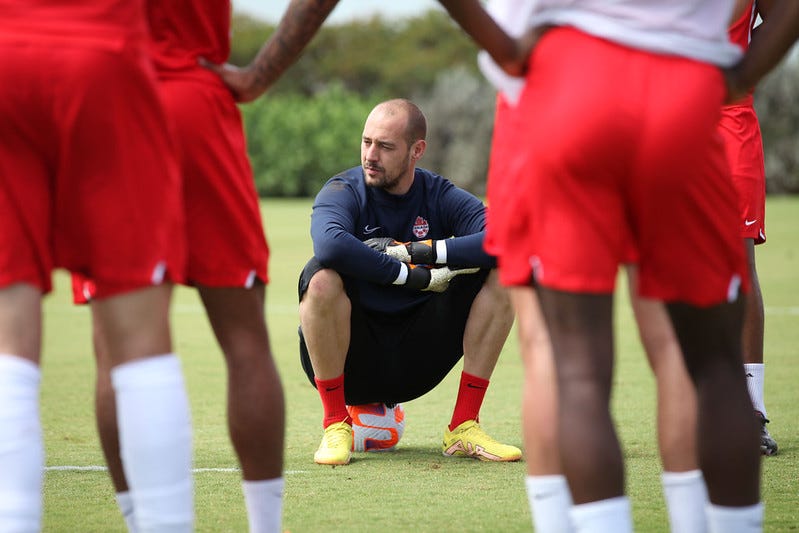
And yet, Canada still needs to win now.
Plus, there aren’t that many old-timers to phase out. The youth of Canada’s roster in Qatar was highlighted when you realized not just that it was full of players 25 years old and younger, but that the most important players: Alphonso Davies, Jonathan David, Eustaquio, Tajon Buchanan all fit in that category.
For this team, consistently qualifying to the World Cup would be a positive change from past iterations. So too would be winning titles and adding to that 2000 trophy with another continental championship or lifting the Nations League trophy.
It all begins with this window. Without a pair of results in March, there’s no way to get into the Nations League Final Four. Even Gold Cup qualification isn’t guaranteed.
There’s that deceptively tough game in Curacao against a team once again led by Remko Bicentini. After he was abruptly removed from his post as Curacao manager, Bicentini worked with Herdman to help Canada prepare for the early rounds of World Cup qualification.
He’s back with Curacao and knows Canada well. On the turf at the Stadion Ergilio Hato, he’ll hope to force the visitors to play the game in a way that favors the hosts.
A win in Willemstad assures Canada of direct qualification to the Gold Cup and sets up a deciding game with Honduras on Tuesday.
Honduras isn’t its strongest-ever version, and it may be even weaker than expected. Alberth Elis’ travel difficulties have put the status of the best Catracho attacker in question. But Canada is plenty familiar with the threat Honduras poses and is shifting its focus from the lofty headspace of the World Cup back to fighting for regional superiority.
“I think having a bit of time post-World Cup gave us all a bit of time to breathe,” Herdman said last week. “There’s so much to play for in March.”
The other two teams in North America may take that regional success for granted, but after missing out on the inaugural edition, getting into the Final Four of the Nations League or winning a Gold Cup would be a huge cornerstone for Canada to build on.
With Canada often struggling to solidify friendly matches, even earning two more games against regional rivals wouldn’t hurt things ahead of the Gold Cup this summer.
It’s likely the most important Gold Cup in Canada’s history, with 2000’s champions coming from a bit off the grid. After staking a claim as one of Concacaf’s best in World Cup qualification, Canada gets a chance to defend that claim.
As off-field frustration escalates, Canada can set itself up well this window for a statement summer, one that could see it win its first trophy in 23 years.
It starts here for Herdman and his squad to look back in three years and once again say: Canada did it.


